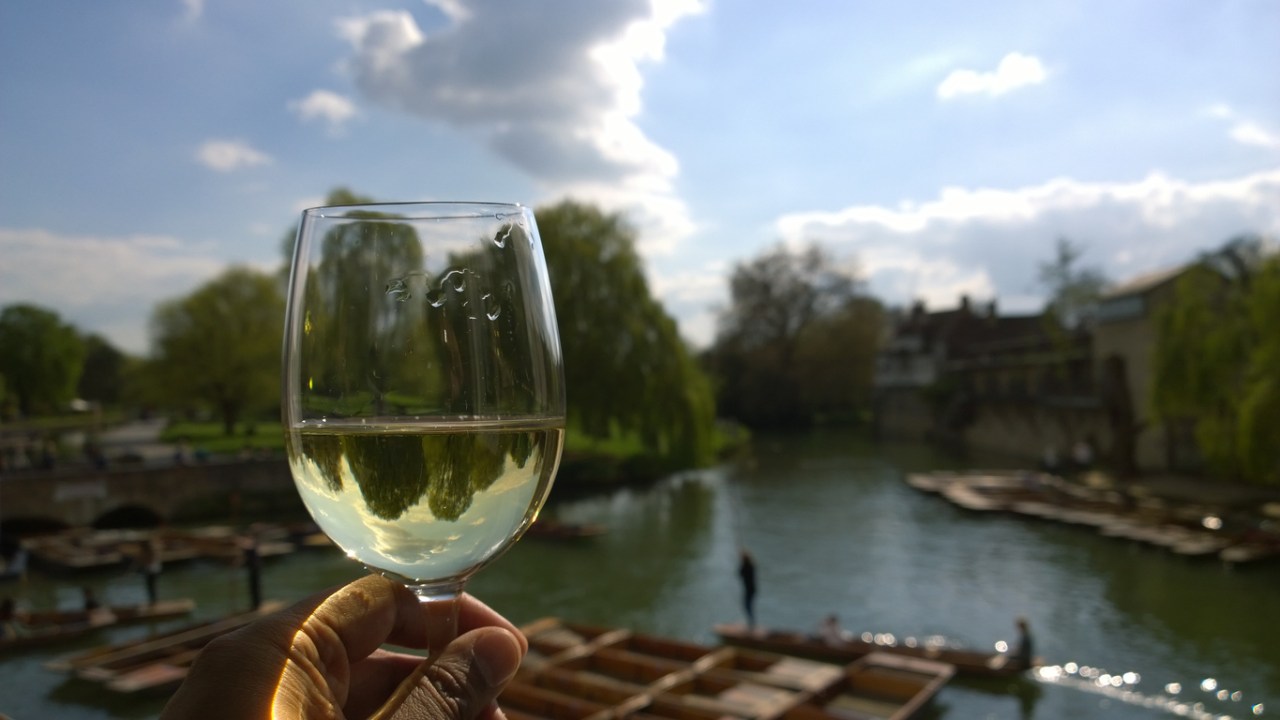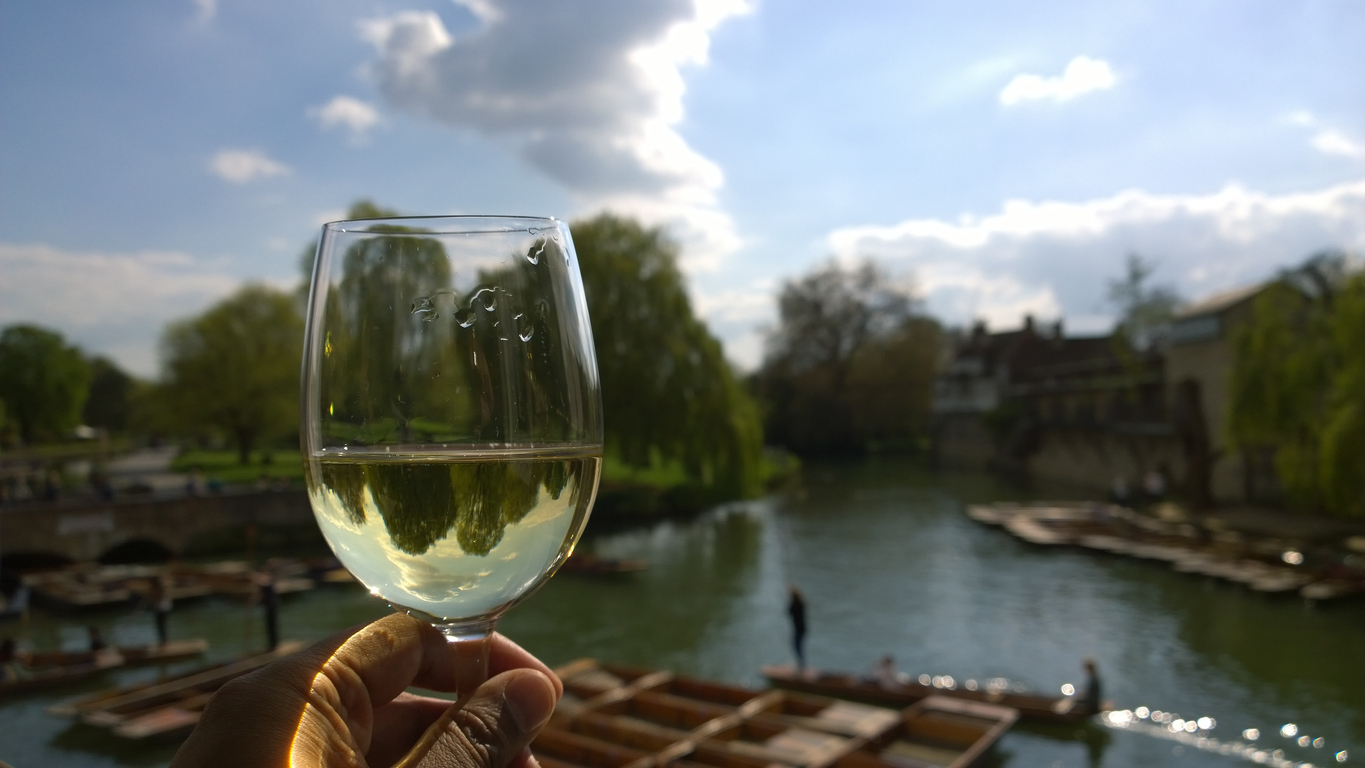In June last year, King’s College Cambridge made more than £1 million from an auction of just 41 lots from its wine cellar. Not bad for a college that until just a few years ago had a hammer and sickle flag hanging in its student bar. But the Marxist sympathies of some of its legendary fellows and students stand little chance against the viticultural genius of the cellar’s buyer: Peter de Bolla, a scholar of 18th century literature and aesthetics. Included in the bonanza sale were 12 bottles of 1999 Echezeaux, an apparently legendary grand cru from Henri Jayer, for which someone bid £100,000. De Bolla had bought them on release and, to give some indication of the return on his investment, when he bought the 1996 vintage he had paid £31.11 per bottle.
De Bolla is the head boffin at the King’s cellar. But Cambridge’s most elite professoriat is dotted with grey-haired men – scholars of texts ancient and modern – whose expertise and knowledge about wine rivals (and at times may even supersede) their academic attainment. Among the select crew whose lord and king is de Bolla there is one that stands out: his old friend and colleague Professor Simon Goldhill, a classicist and something of a Dionysus figure.
My first experience of Professor Goldhill’s bacchanalian approach to conviviality came ten years after I, along with all other undergraduates studying English literature at Cambridge, had read and been examined on his seminal book Reading Greek Tragedy. A decade later I had returned to Cambridge for an MPhil in Gender Studies. My then-boyfriend , a historian of 17th century Englishmen in Syria, had a position at an institute run by Goldhill. My ex could not attend its summer party, but I went along anyway. The memorable evening involved celebrations in Goldhill’s rooms opposite the famous chapel, with fast-depleting and endlessly topped-up decanters and flagons of old Burgundies and Bordeaux sitting among rare-looking bibles and art books.
Last year, Goldhill published a landmark book called What is a Jewish Classicist? The book marked a new phase of more externalised rumination and reflection about his Jewishness – itself fairly exceptional among humanities professors in Cambridge, very rare in classics and extremely rare among serious wine drinkers and dealers everywhere. ‘I love being a Jewish classicist,’ he tells me. And boy does he love – and know – wine.
‘We had a group in Cambridge which I was honoured to be a part of. We met every two or three weeks and we would drink a very precise, blind group of wine… it was a way of really learning the small distinctions’
All of this made an invitation to spend an evening sampling fine wine from his cellar (‘I am the only Jew with a personal cellar at King’s,’ he tells me proudly, one Jew to another) hard to resist. What sort of wines would he pluck from his enviable patch of the cellar, and would he present them with any particular Dionysian flourish that could be emulated?
To find out, I went to his home in Cambridge on a chilly evening, walking into a snug, bay-windowed living room to find several other professors (including the daunting de Bolla) already making brisk progress through flutes of Delamotte (from £35 at The Champagne Company). ‘Why this champagne?’ I asked through large swallows: it was ice cold and golden-tasting, like caramel popcorn but restrained. ‘Oh, just what I had,’ Professor Goldhill responded with a brisk shrug.
He handed around homemade fish goujons and smoked salmon toast. The meal was entirely composed of beautiful variations on fish, from ceviche of John Dory to a gorgeous salted sea bass sourced from the nearby Mill Road fishmonger. It was followed by a panettone bread pudding so unctuous I had four helpings (and so did a chic Latin professor). It was, as Goldhill reminded me, a kosher meal – apart from the wine, though there is some disagreement over whether the kosher designation is meaningful for wine, which after all pops up in the Torah more than a few times. Goldhill, who keeps kosher, considers even wine that has not been blessed by a rabbi fair play, and in doing so opens himself up to much enjoyment. ‘It’s the pleasure,’ he said. ‘People underestimate the pleasure.’
The wines had all been selected to match the dishes. After the bright and crisp Clos Hauserer, a 2012 Riesling (the 2020 vintage is available from Vivino for £48) came probably the best wine I’ve ever had: a Chassagne Montrachet La Romanée premier cru from 2013, retailing at around £800 and the vinous equivalent of a diaphanous dress worn by Marie Antoinette,
Next came three red belters. The 1989 Morey-St-Denis (the closest I have been able to find for sale, the 1981, costs £522), which came out a delicate mix between amber and ruby, and tasted less of fruit or tobacco or other inert substances and more like drinking ballet steps and a nostalgic past. It sprawled. It was also softer than the Nuits Saint Georges, Les Poisets, from 1999 (I could only find the 1998 online, which costs around £280). This was a grand wine, all well-built Corinthian columns and, to judge by de Bolla’s enthusiastic swallows, very fine indeed, if too stern for my taste. And then a Grand Vin du Chateau Phelan Segur from Saint Estephe from the year of my birth: 1982 (£105). It was all tobacco-scented leather and ripe plums, while the dessert wine – Monbazillac Domaine du Touron 1983 (£52) – came out rose-gold, glistening with cold, and simply delicious.
After the other guests had stumbled out into the night, Goldhill explained to me a bit about his love affair with wine. ‘I love the taste of wine. I love drinking wine, I love tasting wine, I love the feeling of wine,’ he said. ‘I don’t drink because I want to get pissed… I drink because I love the mixture of sociality and conversation. And you see, if people don’t know about wine, they don’t know how lovely it can be.’
But how did he come to know about wine to the extent that he could choose vintages that would eventually be worth a small fortune? Being in the refined embrace of Cambridge has helped. Goldhill has friends who also take the pursuit seriously. ‘We had a group in Cambridge which I was honoured to be a part of,’ he told me. ‘Some academics, some of the best wine merchants in Cambridge, some of the best restaurateurs in Cambridge. We met every two or three weeks and we would drink a very precise, blind group of wine. So, for instance, a 1982 claret from the left bank. We worked through, discussed, and it got more and more exciting as we did this. And it was a way of really learning the small distinctions.’
Who would Goldhill most like to drink with in antiquity, I ask? His answer is Anacreon, a Greek lyric poet known for erotic poems and drinking songs. ‘We don’t have that much of Anacreon left, but the poems that we do have are absolutely fab. They’re funny, they’re smart. And he was a great hero… he changed the whole world of literature in the period and is almost completely forgotten by most people. He was still being written on the floor in mosaics in the fourth century, in Gaul, a thousand years after he was read. He’s a big, big guy and he was said to die choking on a grape.’
How to drink like the dons
While replicating Professor Goldhill’s private cellar at King’s might be a challenge, here are some more accessible approximations for the star turns:
For Chassagne Montrachet Lar Romanée: try Louis Jadot La Romanée, 2013, around £115 from assorted wine merchants.
For 1989 Morey-St-Denis: try Morey St-Denis Premier Cru 1989 ‘Clos de la Riotte’ Moillard, £65 from assorted wine merchants.
For Nuits Saint Georges Les Poisets 1999: try Chambolle-Musigny Les Cras, Domaine Michele & Patrice Rion, Burgundy, £75, from Berry Bros and Rudd.







Comments